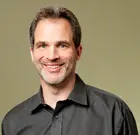
John Kania on “Demystifying Systems Change”
All of us have mental models that may serve as barriers in efforts at achieving systems-wide change. According to John Kania, shifting those frameworks is key to transformational progress.
All of us have mental models that may serve as barriers in efforts at achieving systems-wide change. Shifting those frameworks is key to transformational progress, according to John Kania, Executive Director of the Collective Change Lab, who spoke at Yale’s Social Impact Lab on February 25, 2021. For the past 20 years, as a founder and managing director at FSG, as an executive-in-residence at New Profit, and in his current role, Kania has sought to shift the social sector toward thinking bigger and more systematically about how to address large-scale social and environmental challenges.
Kania presented his theory of systems change as a three-level pyramid. At the top is “structural change,” which includes policies, practices, and resource flows. These are changes that can be seen and researched. The level below that is “relational change,” which may or may not be visible. Relational change is about trust and connections across different actors in a system. In the education system this would be the relations between teachers, students, parents, and administrators, for example. The level at the base of the pyramid is “transformational change,” which are the frameworks and mental models we use that can either limit or expand our ability to change the conditions we seek to address. People’s frames – such as fatalism, seeing problems as “us versus them,” or individualism in the face of a collective challenge – all too often perpetuate intractable societal problems.
It is tempting for change leaders to stay focused on structural changes and linear, technical solutions. But according to Kania, each level of the pyramid deserves equal weight. Take the Affordable Care Act: while effective at expanding health insurance and designed in a way to generate buy-in from governments and companies, the ACA did little to make us re-think our mental models about what a health care system should look like, and our health care system remains mired in many of the same problems more than a decade later.
In contrast, organizers supporting same-sex marriage recognized that the underlying barrier to change was not so much legislation as it was people’s mental models and frameworks. Organizers’ strategies centered around how to change the psychology of ordinary people by building on-ramps to engage potential allies. That required specific strategies to shift mindsets – including the inclusive catchphrase “Love is love” – reflecting a proactive choice to build a multicultural approach to attract a multicultural coalition. An assertive community-organizing operation targeted states and politicians where persuasion was more likely. These efforts were not at the expense of efforts to repeal the Defense of Marriage Act and to legalize same-sex marriage, but were complementary. At the start of 2004, same-sex marriage was not legal in any state and only 30 percent of Americans supported it. By 2015, it was the law of the land and attracted 60 percent support.
Kania left the audience with several lessons. Systems change requires more than effective public policy; it requires relationship strengthening, power building, mental model shifting, and disciplined, long-term strategizing. Changing the conditions on the ground requires research on which mental models stand in the way of transformation and building collective distributed leadership to get results. Tackling these mental models and frames that stand in the way of systematic change is a bold task for all of us.
By Drew D’Alelio, MBA/MA 2022



